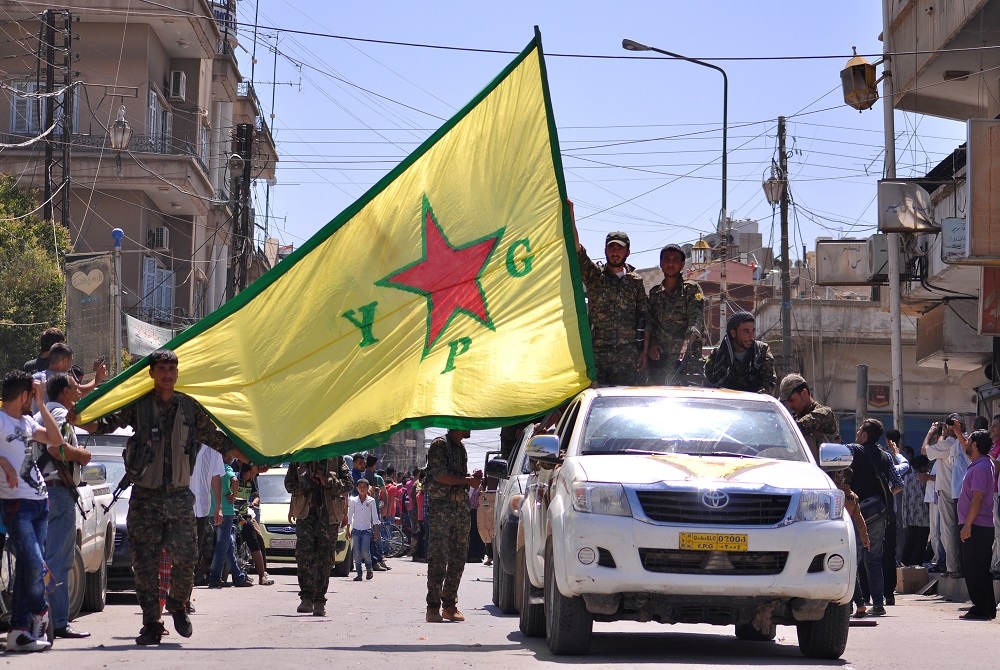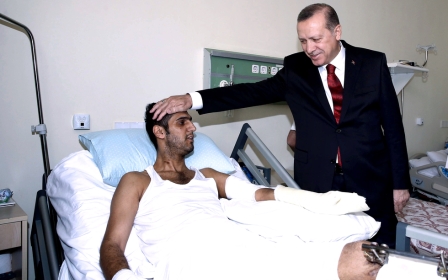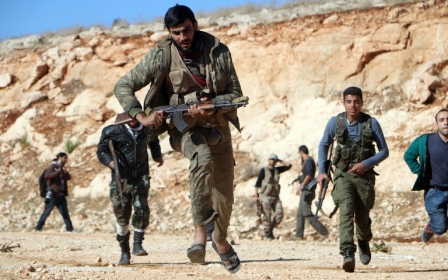Russia fails in UN bid to rein in Turkey over Syria

By Carole Landry
Western powers rejected on Friday a Russian bid at the United Nations to halt Turkey's military actions in Syria, as France warned of a "dangerous escalation" in the nearly five-year conflict.
The emergency Security Council meeting came as US Secretary of State John Kerry warned there was "a lot more work to do" for a ceasefire to take hold in Syria, following talks in Geneva between American and Russian officials.
An elusive ceasefire was meant to begin on Friday, but failed to materialise after Kurdish troops recaptured the strategic town Shadadi in northeast Syria from the Islamic State (IS) group.
Russia, which has been carrying out air strikes in support of Syrian leader Bashar al-Assad's forces, has urged the UN to press Turkey to halt its shelling of Kurdish forces in the country's north.
Moscow presented a draft resolution that "strongly demands" an immediate end to cross-border shellings and plans - supported by Turkey - for foreign ground intervention in Syria.
But the text failed to garner support from key council members with at least six countries including veto-wielding France and the US rejecting it outright during a closed-door meeting, diplomats said.
US Ambassador Samantha Power accused Moscow of trying to "distract the world" from its air campaign in support of the Syrian regime and urged it to abide by UN resolutions supporting a peace process.
"Russia must understand that its unconditional support to Bashar al-Assad is a dead-end and a dead-end that could be extremely dangerous," French Ambassador Francois Delattre said.
"We are facing a dangerous military escalation that could easily get out of control and lead us to uncharted territory," he said.
Turkey is pressing for a joint ground operation in Syria with its international allies, insisting it is the only way to stop the war.
Turkish Ambassador Yasar Halit Cevik said his country was facing "national security threats emanating from Syria" in reference to the Kurdish militias it is targeting in the country's north.
On Friday, Turkish President Recep Tayyip Erdogan repeated accusations that the YPG was behind a Wednesday bombing in Ankara that killed 28 people.
Turkey has carried out nearly a week of shelling against SDF positions in Aleppo, intensifying its fire on Friday and expanding it to target the Kurdish town of Afrin, where two civilians were killed, the Observatory said.
Ankara fears the SDF advance in Aleppo province is intended to connect Kurdish-held areas in northern and northeastern Syria, creating an autonomous Kurdish region along much of its southern border.
The Syrian conflict, which began with anti-government protests in March 2011, has drawn in several international players including Russia, which launched its air strikes in support of Assad five months ago.
Saudi Foreign Minister Adel Jubeir meanwhile raised the prospect that Syrian rebels could be supplied with surface-to-air missiles, though he said it was not a decision Riyadh would take alone.
He said such missiles would "change the balance of power on the ground".
Syria's conflict is now approaching its sixth year, with more than 260,000 people killed and half the population displaced.
Middle East Eye propose une couverture et une analyse indépendantes et incomparables du Moyen-Orient, de l’Afrique du Nord et d’autres régions du monde. Pour en savoir plus sur la reprise de ce contenu et les frais qui s’appliquent, veuillez remplir ce formulaire [en anglais]. Pour en savoir plus sur MEE, cliquez ici [en anglais].




